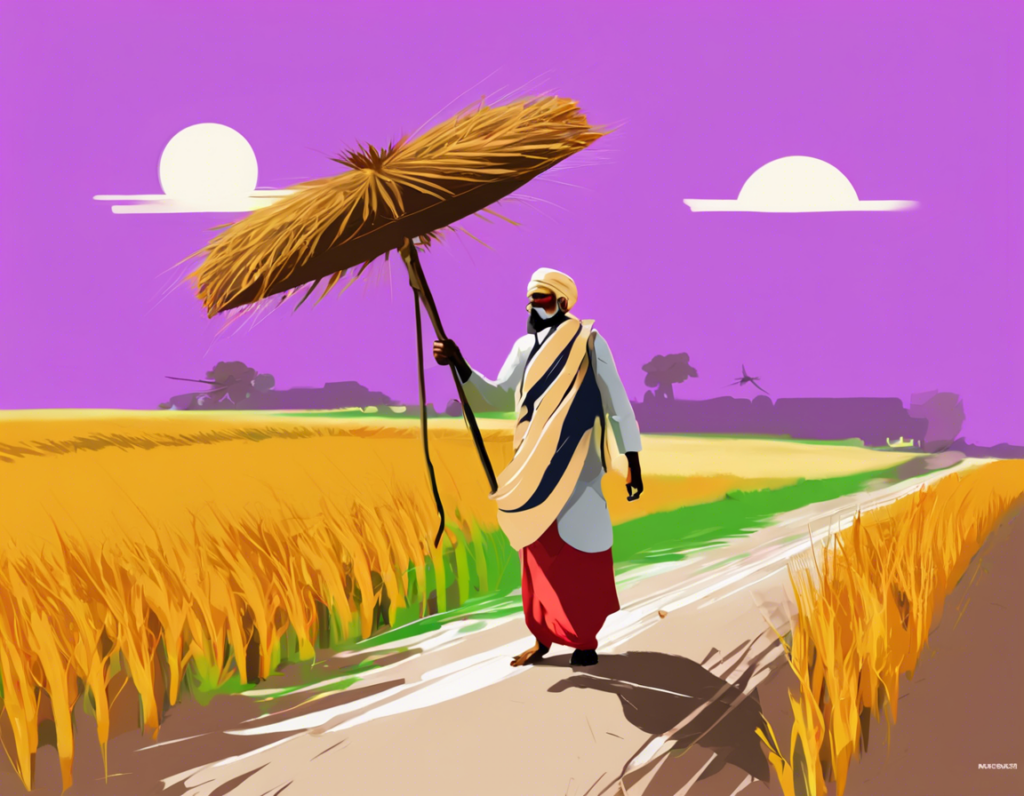The Kisan Andolan Movement in India has garnered significant attention and support from across the country, as farmers unite to protest against the new agricultural laws introduced by the government. The movement, which has been ongoing for several months, has brought to light the challenges faced by farmers and has sparked a national conversation on agricultural reform. In this article, we will provide a comprehensive overview of the Kisan Andolan Movement, exploring its origins, key players, demands, challenges, and potential impacts on the agricultural sector in India.
Origins of the Kisan Andolan Movement
The Kisan Andolan Movement officially began in November 2020 when thousands of farmers from Punjab and Haryana marched towards Delhi to protest against the new agricultural laws passed by the Indian government. The movement gained momentum as more farmers from states across the country joined in solidarity. The key players in the movement are various farmers’ unions and organizations, representing the interests of small and marginalized farmers.
Key Players in the Movement
- All India Kisan Sabha (AIKS): One of the largest farmers’ organizations in India, AIKS has been actively involved in organizing protests and advocating for farmers’ rights.
- Bharatiya Kisan Union (BKU): Led by prominent farmer leader Rakesh Tikait, BKU has been at the forefront of the movement, mobilizing farmers and galvanizing support.
- Key Farmer Leaders: Leaders such as Rakesh Tikait, Balbir Singh Rajewal, and Darshan Pal Singh have emerged as key figures in the movement, representing the voice of the farmers.
Demands of the Farmers
The primary demands of the farmers participating in the Kisan Andolan Movement include:
- Repeal of the New Agricultural Laws: Farmers are calling for the repeal of the three new agricultural laws – the Farmers’ Produce Trade and Commerce (Promotion and Facilitation) Act, the Farmers (Empowerment and Protection) Agreement on Price Assurance and Farm Services Act, and the Essential Commodities (Amendment) Act.
- Legal Guarantee of Minimum Support Price (MSP): Farmers are also demanding a legal guarantee for MSP to ensure fair remuneration for their produce.
- Withdrawal of Electricity (Amendment) Bill, 2020: In addition to the agricultural laws, farmers are opposing the Electricity (Amendment) Bill, 2020, which they fear will lead to higher electricity prices for agricultural purposes.
Challenges Faced by the Movement
Despite widespread support and solidarity, the Kisan Andolan Movement has faced several challenges:
- Government Response: The government has been reluctant to meet the demands of the farmers, leading to a stalemate in negotiations.
- Media Coverage: The movement has received mixed coverage in the media, with some channels accused of bias and misrepresentation.
- Disruption of Communication: The government’s crackdown on internet services at protest sites has hindered communication and coordination among the protesters.
Potential Impacts of the Movement
The Kisan Andolan Movement has the potential to bring about significant changes in the agricultural sector in India:
- Policy Reforms: The movement has put pressure on the government to reconsider the new agricultural laws and engage in dialogue with the farmers to address their concerns.
- Solidarity Among Farmers: The movement has united farmers from different states and backgrounds, fostering a sense of solidarity and collective action.
- Awareness and Advocacy: The protests have brought national and international attention to the challenges faced by Indian farmers, leading to increased awareness and advocacy for agricultural reforms.
Frequently Asked Questions (FAQs)
Q: What are the main reasons for the farmers’ protests in India?
A: The farmers are protesting against the new agricultural laws introduced by the government, which they believe will hurt their income and bargaining power.
Q: How long has the Kisan Andolan Movement been going on?
A: The movement officially began in November 2020 and has been ongoing for several months.
Q: What are the key demands of the farmers participating in the movement?
A: The farmers are demanding the repeal of the new agricultural laws, legal guarantee of MSP, and withdrawal of the Electricity (Amendment) Bill, 2020.
Q: Who are the key players in the Kisan Andolan Movement?
A: Organizations such as AIKS and BKU, along with farmer leaders like Rakesh Tikait and Balbir Singh Rajewal, are key players in the movement.
Q: What impact could the Kisan Andolan Movement have on the agricultural sector in India?
A: The movement has the potential to bring about policy reforms, foster solidarity among farmers, and increase awareness and advocacy for agricultural reforms.
In conclusion, the Kisan Andolan Movement represents a significant moment in India’s agricultural history, with farmers coming together to demand their rights and push for reforms. The movement highlights the challenges faced by farmers and the need for a more inclusive and sustainable agricultural policy. As the protests continue, it remains to be seen how the government will respond and whether the demands of the farmers will be met.
